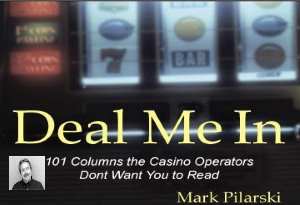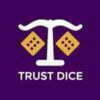With every passing day, I notice a new online casino showing up on the Internet. Are they becoming more socially acceptable? Are they getting the same amount of action as a land-based casino? And finally, would you recommend playing online for those of us who live a long distance from a casino? Chris M.
Greenfield Online’s new study of online gamblers, “What Are the Odds?” divulges plenty of complaints about gambling on the Internet. Nearly a third (31%) of online gamblers are not satisfied with Internet gambling sites, and only 15% feel online casinos are more fun than their offline counterparts. Moreover, 89% are only willing to play for free, and most of those who do risk their hard-earned money spend less than $10 per online visit.
The more sobering criticism is that some 60% of the 2,000 people surveyed believe online gambling sites are “fixed.” Hello, anybody home? Thirty-one percent are not satisfied, but 60 percent think the game is rigged. It is beyond comical to reflect that some players, believing the game to be fixed, still amuse themselves gambling online. Reminds me of one of the more legendary gamblers of all time named Canada Bill. His gambling immortality does not rest on his gambling prowess, nor his formidable wins or losses. He is remembered by a single line he once uttered on the Mississippi, a phrase recited by a myriad of gamblers since. Bill was losing his entire bankroll at Faro when a friend approached and said, “Bill, don’t you know this game is crooked?” “Yes,” answered Canada Bill, “but it’s the only game in town.”
Because of the exponential growth of unregulated online casinos just a mouse click away, this columnist recommends not playing against a Cyberspace One-Armed Bandit. Let these players who think the game is set-up but still want action gamble their money instead.
It was my belief when playing blackjack that you always double down with an 11 against the dealer showing an ace. A “self proclaimed” expert on the game informed me that I was playing that hand wrong. He said I should just hit the hand. Who is correct? Jeb C.
Both of you, sort of. You failed to mention in your question, Jeb, whether you were playing on a single or multiple deck game. The correct strategy would be to hit your 11 versus an ace when playing multiple deck, but double down when on a single deck game.
With the law of averages always working for the casino, I have always wondered how there can be winners. Won’t the casino still get all my money in the end? Cindy S.
The law of averages, Cindy, can’t predict the outcome of a single event-only the summary outcome of a large number of events-which is why it’s sometimes called the law of large numbers. Actually, the law of averages has little to say about a singular gambler over a short period, and is therefore at times unreliable in gauging the gambling outcome for a single gambler. You, Cindy, will not be playing 1,000,000 hands of blackjack. And since probability does not always have time to work during the brief visit of many a casino gambler, you do actually have people winning.
The casino trusts the law of averages because Cindy is not the only player. The casino stays open 24 hours a day, and entertains millions of wagering events from players at blackjack, slots, roulette, and craps, to name a few. The law of averages for the casino is an excellent point of reference on how much they will win from the multitudes of gamblers, not necessarily against Cindy S. from Seattle.
Gambling thought of the week: “Even as I approach the gambling hall, as soon as I hear, two rooms away, the jingle of money poured out on the table, I almost go into convulsions.” -Fyodor Dostoevsky, The Gambler (1867)




















